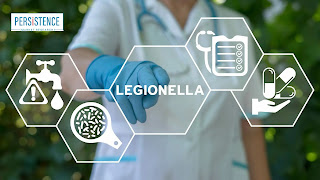Booming Regional Growth Propels Legionella Testing Market Forward
Unlocking the Potential: Exploring the Legionella Testing Market
In the realm of public health, Legionella bacteria pose a significant threat, causing Legionnaires' disease, a severe form of pneumonia, and Pontiac fever, a milder illness resembling the flu. These bacteria thrive in water systems, making them particularly challenging to control. With increasing awareness of the dangers posed by Legionella, the demand for effective testing solutions has surged, giving rise to a dynamic Legionella testing market.
The Legionella testing market is witnessing steady growth globally, fueled by increasing awareness of Legionnaires' disease and the importance of water safety in various settings. Legionella testing involves the detection and monitoring of Legionella bacteria in water systems, crucial for preventing outbreaks and ensuring public health safety. The global legionella testing market is forecast to expand at a CAGR of 8.5% and thereby increase from a value of US$298.2 Mn in 2023, to US$527.9 Mn by the end of 2030.
Legionella: The Hidden Threat
Legionella bacteria are ubiquitous in natural water sources, but they become a concern when they proliferate in human-made water systems such as cooling towers, hot tubs, plumbing systems, and decorative fountains. The inhalation of aerosolized water droplets containing Legionella can lead to respiratory illnesses, with severe cases potentially proving fatal. The Centers for Disease Control and Prevention (CDC) reports thousands of cases of Legionnaires' disease annually in the United States alone, with outbreaks occurring in various settings, including hospitals, hotels, and cruise ships.
The Need for Vigilance: Regulatory Landscape
Given the potential public health risks associated with Legionella, regulatory bodies worldwide have implemented guidelines and regulations to ensure the safety of water systems. For example, in the United States, the Centers for Medicare & Medicaid Services (CMS) requires healthcare facilities to develop and adhere to water management programs to reduce the risk of Legionella transmission. Similarly, the European Union's Drinking Water Directive sets standards for Legionella in drinking water, mandating regular testing and monitoring.
Rising Awareness Fuels Market Growth
The growing awareness of Legionella-related risks among industries such as healthcare, hospitality, and manufacturing has been a key driver of the Legionella testing market. Organizations are increasingly recognizing the importance of proactive testing and risk management strategies to safeguard public health and mitigate potential liabilities.
To gain additional insights@ https://www.persistencemarketresearch.com/market-research/legionella-testing-market.asp
Technological Advances: Driving Innovation in Testing
The landscape of Legionella testing has evolved significantly in recent years, with advancements in technology paving the way for more accurate, rapid, and cost-effective testing methods. Traditional culture-based methods, while still widely used for confirmation purposes, are being complemented by molecular techniques such as polymerase chain reaction (PCR) and next-generation sequencing (NGS). These methods offer faster turnaround times and greater sensitivity, enabling early detection of Legionella in water samples.
Furthermore, the emergence of point-of-care testing devices has revolutionized on-site testing, allowing for real-time monitoring and immediate corrective action. These portable devices provide rapid results, empowering facility managers to implement timely interventions to control Legionella proliferation.
Market Dynamics: Key Players and Trends
The Legionella testing market is characterized by a diverse array of players, including diagnostic laboratories, manufacturers of testing kits and equipment, and consulting firms specializing in water management. Major players in the market include Bio-Rad Laboratories, Thermo Fisher Scientific, Quidel Corporation, and bioMérieux SA, among others.
One notable trend in the market is the emphasis on integrated solutions that offer end-to-end capabilities, from sample collection to data analysis. This integrated approach streamlines the testing process, enhances efficiency, and ensures compliance with regulatory requirements.
Additionally, the market has witnessed a surge in the adoption of cloud-based platforms for data management and analysis. These platforms provide centralized access to testing results, facilitate trend analysis, and support decision-making regarding water management strategies.
Challenges and Opportunities
Despite the advancements in Legionella testing technology, several challenges persist. One such challenge is the variability in sampling techniques and protocols, which can impact the accuracy and reliability of test results. Standardization of sampling procedures and training programs for personnel involved in testing and maintenance are essential to address this issue.
Moreover, there is a need for greater awareness and education regarding Legionella risk management practices among stakeholders across industries. Investing in comprehensive training programs can empower facility managers and personnel to implement effective preventive measures and respond swiftly to potential outbreaks.
Looking Ahead: Future Perspectives
The Legionella testing market is poised for continued growth, driven by factors such as increasing regulatory scrutiny, growing public awareness, and technological advancements. As the demand for robust testing solutions continues to rise, stakeholders must remain vigilant and adaptable to emerging trends and challenges.
Furthermore, collaboration among industry players, regulatory agencies, and public health authorities will be crucial in developing standardized guidelines, promoting best practices, and advancing research in Legionella detection and prevention.
In conclusion, the Legionella testing market represents a critical component of efforts to safeguard public health and mitigate the risks posed by Legionella bacteria. By leveraging innovative technologies, fostering collaboration, and promoting education and awareness, stakeholders can effectively combat the threat of Legionella and ensure the safety of water systems worldwide.
Explore the Latest Trending “Exclusive Article” @
About Persistence Market Research:
Business intelligence is the foundation of every business model employed by Persistence Market Research. Multi-dimensional sources are being put to work, which include big data, customer experience analytics, and real-time data collection. Thus, working on “micros” by Persistence Market Research helps companies overcome their “macro” business challenges.
Persistence Market Research is always way ahead of its time. In other words, it tables market solutions by stepping into the companies’/clients’ shoes much before they themselves have a sneak pick into the market. The pro-active approach followed by experts at Persistence Market Research helps companies/clients lay their hands on techno-commercial insights beforehand, so that the subsequent course of action could be simplified on their part.
Contact Us:
Persistence Market Research
Teerth Technospace, Unit B-704
Survey Number - 103, Baner
Mumbai Bangalore Highway
Pune 411045, India
Email: sales@persistencemarketresearch.com
Web: https://www.persistencemarketresearch.com

Comments
Post a Comment